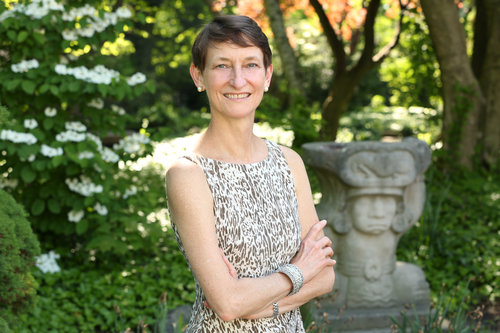Takeaway
Acknowledging and processing grief can bring healing to the clinician.

Lifelong learning in clinical excellence | May 2, 2019 | 4 min read
By Stacia Dearmin, MD, Akron Children\'s Hospital
Over the years, I have learned that an emotional and mental whirlwind hits many healthcare professionals after an unforeseen patient outcome. After my own challenging experience, love of my colleagues has made me passionate about supporting those confronted with a surgical complication, unexpected patient death, diagnostic or treatment error, or malpractice litigation.
Physicians often remind me that the mix of emotions that arise after an unexpected outcome can be overwhelming, sometimes to the point that it endangers a healer’s well-being. Fortunately, simply naming those feelings robs them of some of their power to disorient and harm us. In that spirit, I’d like to explore three roots of the grief that can arise after an unexpected adverse outcome.
1) Grief born of love.
When we hear the word “grief,” we often think of the loss of a loved one. That comes as no surprise; the deepest grief is often born of love.
While it may feel foreign to imagine ourselves grieving our patients’ unexpected losses, research demonstrates that we do. That particular form of grief stems from love, too – love for our patients. If it makes you uncomfortable to envision yourself loving your patients to that degree, allow me to offer you these poignant words from Dr. Rachel Naomi Remen:
How many times are our actions actually motivated by love without our ever knowing it, even when our love is profound and part of who we essentially are? It is easy to recognize romantic love, parental love, fraternal love, the love of country and the love of friends. But how about those of us who love with our minds, studying for years in order to be there with the knowledge to help strangers or those of us who persevere despite daily difficulties because of a deep love of life?
When you love humanity enough to pour in that kind of effort, you care enough to genuinely grieve. It matters not that your patient is not one of your personal inner circle. They are part of your human family, and you have taken an oath to care for all comers. It’s as simple as that.
2) Grief and trauma.
Events that we perceive as disturbing, distressing, or life-threatening have the potential to generate the complex internal injury psychologists have dubbed “trauma.” Confusion and fear commonly arise in response to these experiences, and they also may cause us to grieve.
It is not uncommon for healers to experience unforeseen, adverse patient outcomes as traumatic. Perhaps our compassionate nature with finely tuned mirror neurons set us up to experience our patient’s life-threatening, surprising event in some ways as if it were our own. Although it is “normal” for these events to provoke an inner injury to us as healers, when we go through that inner injury firsthand, it may feel anything but ordinary.
Occasionally, healers experience the grief associated with a traumatic event as overwhelming. Ignored, it can result in persistently negative feeling-states which impinge upon our capacity to live well and care for others and ourselves. If you find yourself facing deep grief after a patient’s unexpected outcome, I encourage you to find a trustworthy source of support, such as a psychologist or spiritual counselor, who can help you to process it as soon as possible. The energy you invest in healing will come back to you manyfold.
3) Grieving a piece of ourselves
Our work in medicine forms a fundamental element of our identity. In our hearts and minds, we don’t just heal, we are healers.
After an unexpected, adverse patient outcome or in the midst of malpractice litigation, many physicians repeatedly question their fitness as a healer, their diligence, their intelligence, their clinical acumen. I know, having struggled with those questions myself. Like others I’ve met, I experienced a loss of innocence, and with it grieved the loss of the imagined ideal healer I’d hoped to be. In time, I found my center again, but not without great effort. I now know that I was not alone in feeling heartbroken by the imperfect nature of our capacity to heal our fellow humans. At a cognitive level, I think I knew my work could not be perfect all along. Still, it’s quite another matter to feel it in your soul.
I encourage you to take heart in knowing that you are walking the path of a true healer. Counterintuitive as it may seem, it is the very gifts you bring to your patients – your compassion, your diligence, your desire to see them get well – which makes you vulnerable to a challenging array of emotions. While you may wonder whether you are adequate to the task, your grief reveals that you bring great gifts and real devotion to the art of healing. This part of a life in medicine is difficult, no doubt. With time and support, though, healing can come to you, too.

